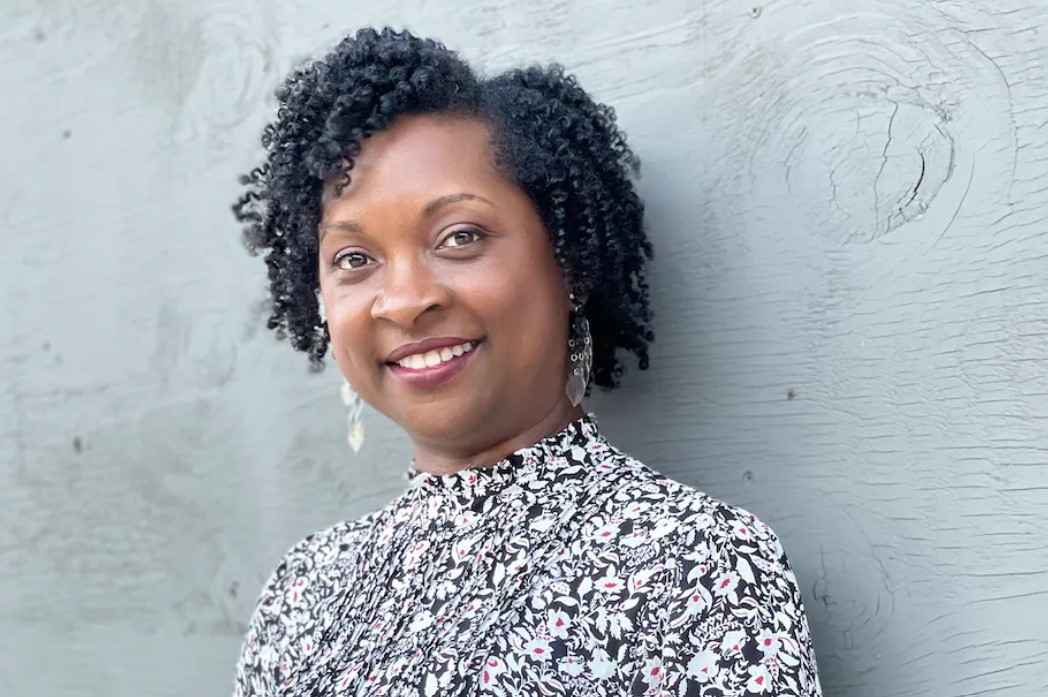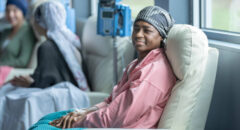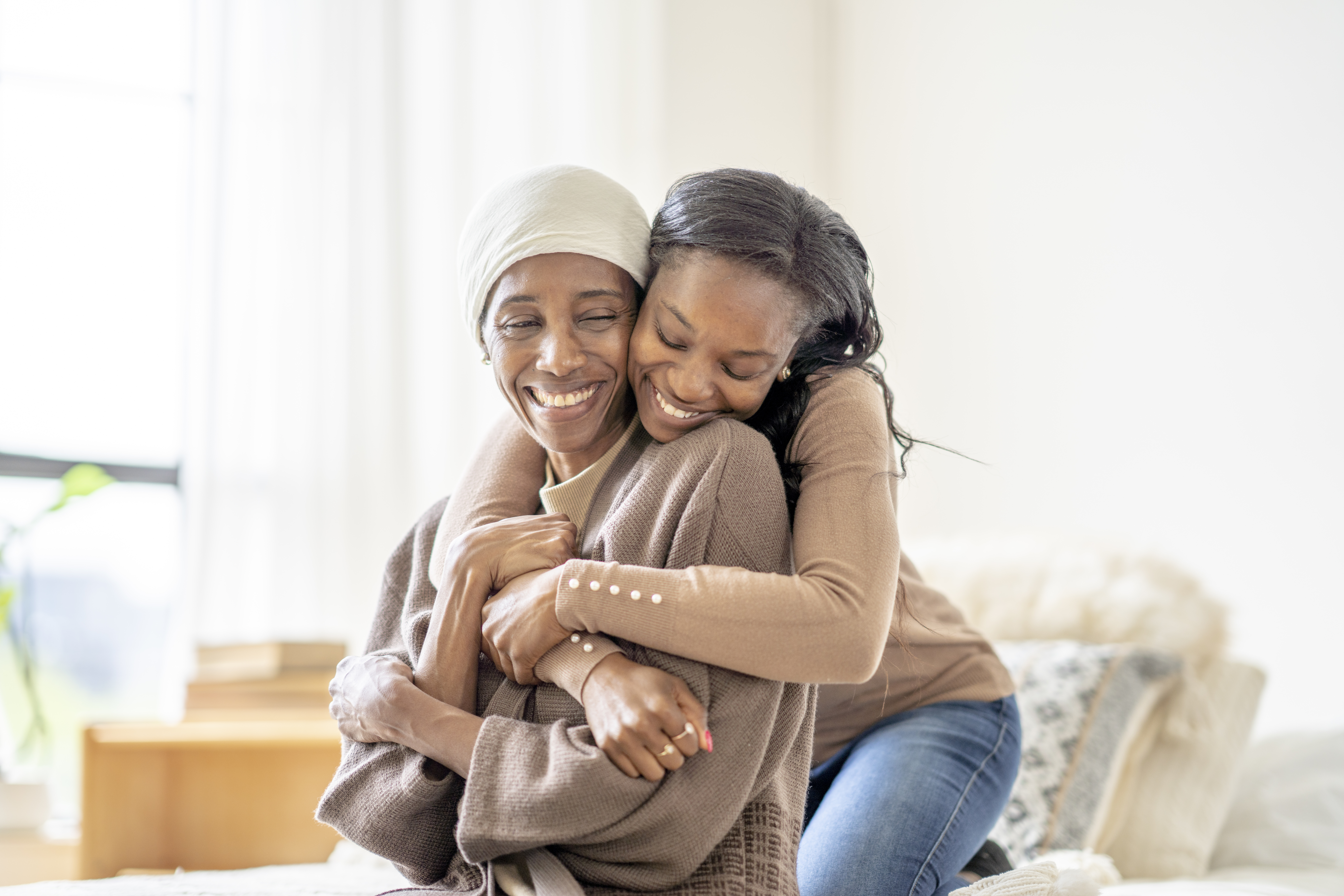
For most people, it is completely normal to have one breast that is larger than the other. However, for Katrece Nolen, it was a cause for concern.
She made the discovery while she was crawling on the floor with her youngest child, who was a toddler at the time.
Immediately knowing something was off, she called her doctor, who was out that day. The receptionist offered her an appointment at a later date, but Nolen knew her discovery needed immediate attention.
“I said, ‘No, I need to see somebody today,’ ” Nolen recalls.
Black women and self-advocacy
Nolen was officially diagnosed with inflammatory breast cancer, an especially aggressive form of breast cancer, in 2013. Fortunately, she beat her cancer diagnosis. Now, nine years into her remission, the 47-year-old is more passionate than ever to share the importance of self-advocacy for Black women.
“The most important thing about self-advocacy is don’t give up,” Nolen shares. “You have to push through the despair to get the test results, the diagnosis and the appointments you need.”
This is a message that is extremely crucial for Black women who have a 41 percent higher death rate, despite having a 4 percent lower incidence of breast cancer than white women, according to the American Cancer Society.
According to the report, this is in large part due to millions of low-income Black people being exposed to environmentally toxic neighborhoods and severely limited access to health care, quality food and good schools.
This is just one factor; however, even Blacks who have the resources often get dismissed or have to fight to get adequate care.
RELATED: 5 Commonly Overlooked Signs of Breast Cancer
Facing her obstacles
Nolen, an entrepreneur, civic activist and book author, has health insurance, work flexibility and access to the best medical facilities and still remembers having to fight for the care and respect she deserved after her mammogram and an ultrasound exam showed inconclusive results.
“So, a couple of weeks later, I was trying to button my shirt and I couldn’t button my shirt, it had swollen up that much that fast,” Nolen shares.
After being referred to a specialist, she was told that she would not be able to get an appointment until two months later.
“I said, ‘You know, this swelling occurred in just a few weeks. I don’t think waiting two months will work out for me. Can she see me sooner?’ ” Nolen recalls. “And they said, ‘No, she’s booked up.’ ”
Faced with a dilemma and not willing to allow the fast-growing breast cancer to spread to other parts of her body, Nolen asked if another doctor was available. Fortunately, there was. If Nolen had waited those two months, she could have faced a completely different outcome.
Inflammatory breast cancer kills roughly 60 percent of the women who get it within five years and Black women with it tend to live about two years less than white women.
At her next appointment, Nolen would face yet another obstacle. After bringing her mammogram results on a compact disc, she was told that the medical equipment only took film and she would have to reschedule.
“I said, ‘No, you didn’t mention anything about film,’ ” Nolen shares. “ ’I’m here. I’ve been waiting. I can at least have a talk with the doctor, right?’ ” The receptionist said no. “And I said, ‘No, no, no. I need to be seen today.’ ”
While having a discussion with the office manager, Nolen’s doctor walked in, explaining the need for film and apologizing for the delay.
“She said, ‘Ms. Nolen, looking at your records and looking at you, standing right here in front of me, I think you may have inflammatory breast cancer,’ ” Nolen says. “And I was like, ‘What? I don’t even know what that is, but, oh, Lord.’ ”
From there, Nolen received a skin biopsy on a Friday and spent the weekend anxiously awaiting her results. On Monday, her doctor’s speculations were confirmed and she began to assemble her treatment team. After nine months of treatment, Nolen was officially cancer-free. This sparked her to share her experience in her book “I’ve Been Diagnosed. Now What?”
RELATED: Bodybuilder’s Battle With Breast Cancer: “Emotionally I Was a Wreck”
Recognizing the signs of inflammatory breast cancer
Unfortunately, many women aren’t as fortunate as Nolen.
This year alone, an estimated 36,260 Black women will be diagnosed with breast cancer, and 6,800 Black women will die of the disease, according to a report from the American Cancer Society.
Because inflammatory breast cancer can develop so quickly (within 3-6 months), it is important to recognize the signs and symptoms:
- Swelling (edema) of the skin of the breast
- Redness involving more than one-third of the breast
- Pitting or thickening of the skin of the breast so that it may look and feel like an orange peel
- A retracted or inverted nipple
- One breast looking larger than the other because of swelling
- One breast feeling warmer and heavier than the other
- A breast that may be tender, painful or itchy
- Swelling of the lymph nodes under the arms or near the collarbone
Although having any of these symptoms doesn’t mean that you have inflammatory breast cancer, it’s important to see a doctor right away so that if you do have breast cancer, you can get treated as quickly as possible and raise your chances of survival.









